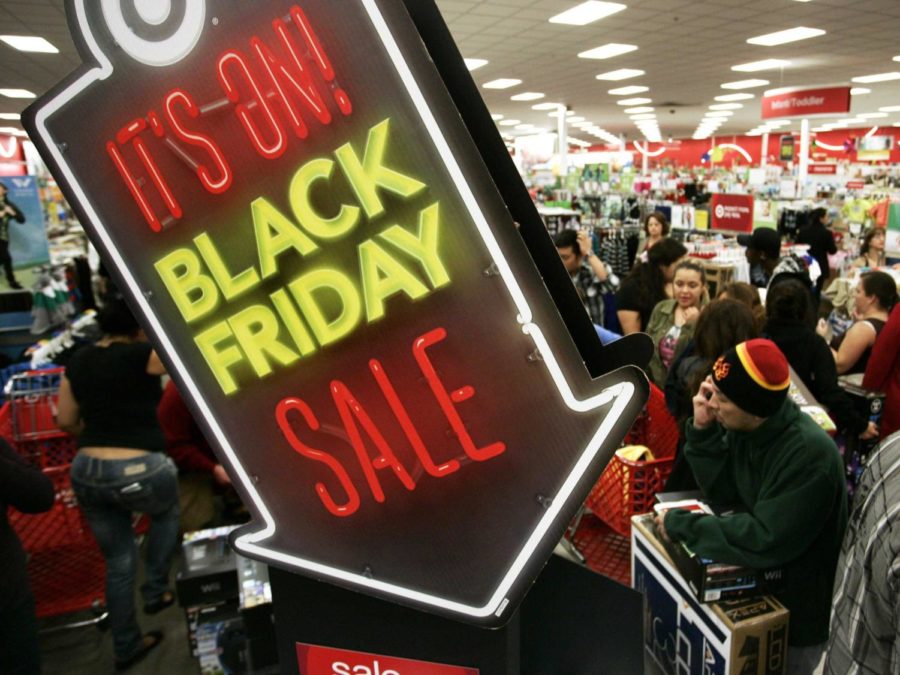The Origins of Black Friday
December 1, 2017
Most anyone would love to save money. Around the holidays, that fact is especially amplified as more and more people are spending more and more money on others. So, for anyone trying to minimize their spending, Black Friday has become the day to shop for holiday gifts. Last Friday, shoppers everywhere flooded stores for the best steals of the season. However, how many people truly know the background of this now nationally recognized day?
The first account of the term Black Friday was actually not even around Thanksgiving. In September of 1869, the stock market crashed and prices dropped dramatically (especially for farmers) after two investors had driven up the price of gold. In other words, Black Friday did not have the most economically favorable start.
As time went on, the term was used again by Philadelphia cops for the day after Thanksgiving. It was considered one of the busiest days of the year, as tourists and visitors would typically still be in the city after the holiday, and normally wanted to go “out on the town.” This resulted in a day dreaded by the cops and locals, as the town became far busier than normal. The police had to work much longer hours that day in order to maintain some degree of order in traffic and the increase in shoplifting cases (since the increase in shoppers offered a distraction shoplifters capitalized on). Therefore, the Philadelphia police began referring to the Friday after Thanksgiving as “Black Friday;” it was a day they never looked forward to.
The term began to spread soon after, and by the 1980s it was a nationally accepted term for the Friday following Thanksgiving. Most retail workers did not like the negative connotation the name “Black Friday” had. So, they developed the much more common and positive origin story for the day. The widely accepted origin story claims that for the most part of the year, businesses operate in “the red,” meaning they are not making any profit yet for the business year. However, the large amount of shoppers on the day after Thanksgiving puts them in “the black” on a financial report, meaning they are finally making a profit.
Businesses offer discounts on Black Friday, encouraging even more spending by the shoppers! Yet, some people are still skeptical of the publicly recognized holiday. Some people claim that retailers begin to increase prices in the months before Black Friday, so that when the major price reduction occurs on the day, they are not really giving that much of a discount at all. Others simply hate the crowds and inevitable craziness of shopping on the day. People line up for deals right after their Thanksgiving meals, and videos are all over the internet of shoppers yelling, wrestling over, and stealing merchandise from each other in an attempt to get the best deals possible. While some may see that as part of the fun, others would rather stay inside and wait for Cyber Monday.

